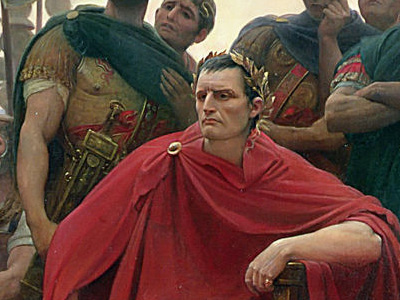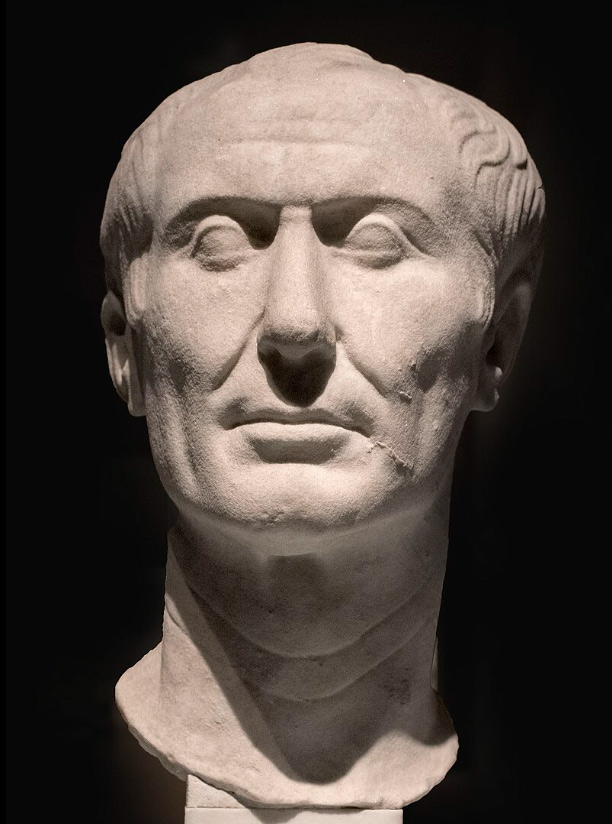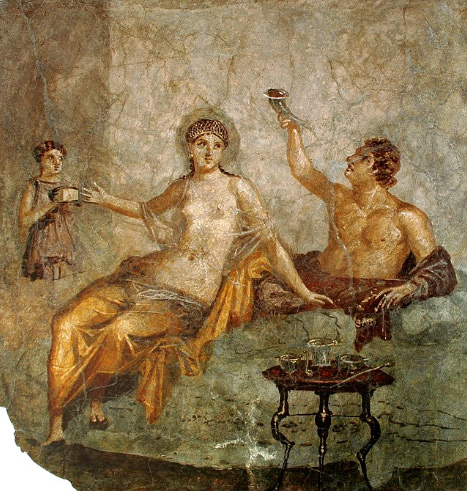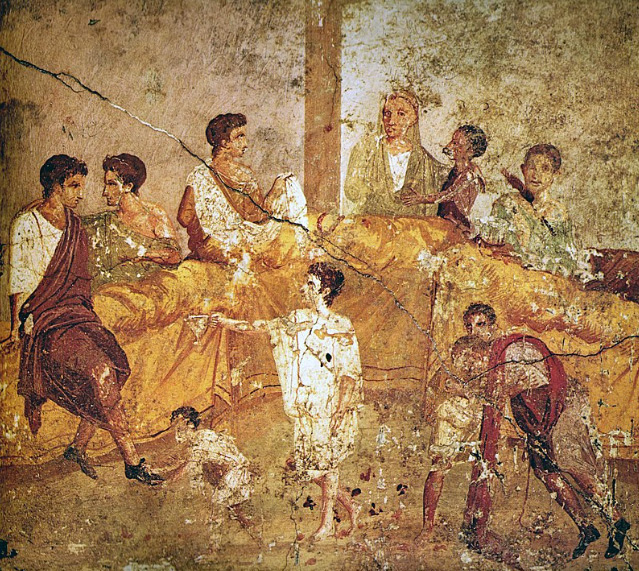Julius Caesar (100-44 BC)
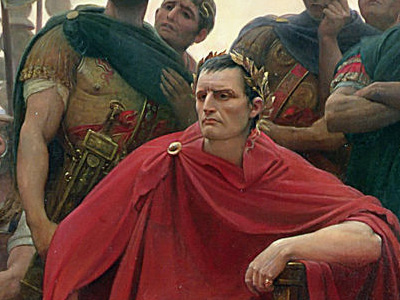
Political Reforms
The history of Caesar's political appointments is complex and uncertain. Caesar held both the dictatorship and the tribunate, but alternated between the consulship and the proconsulship. His powers within the state seem to have rested upon these magistracies. He was first appointed dictator in 49 BC, possibly to preside over elections, but resigned his dictatorship within 11 days. In 48 BC, he was reappointed dictator, only this time for an indefinite period, and in 46 BC, he was appointed dictator for 10 years.
In 48 BC, Caesar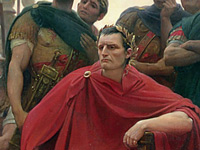 Julius Caesar (100-44 BC), was a Roman politician and general who played a critical role in the events that led to the demise of the Roman Republic and the rise of the Roman Empire. Caesar is considered by many historians to be one of the greatest military commanders in history. Julius Caesar » was given permanent tribunician powers, which made his person sacrosanct and allowed him to veto the Senate, although on at least one occasion, tribunes did attempt to obstruct him. The offending tribunes in this case were brought before the Senate and divested of their office. This was not the first time Caesar had violated a tribune's sacrosanctity. After he had first marched on Rome in 49 BC, he forcibly opened the treasury, although a tribune had the seal placed on it. After the impeachment of the two obstructive tribunes, Caesar, perhaps unsurprisingly, faced no further opposition from other members of the Tribunician College.
Julius Caesar (100-44 BC), was a Roman politician and general who played a critical role in the events that led to the demise of the Roman Republic and the rise of the Roman Empire. Caesar is considered by many historians to be one of the greatest military commanders in history. Julius Caesar » was given permanent tribunician powers, which made his person sacrosanct and allowed him to veto the Senate, although on at least one occasion, tribunes did attempt to obstruct him. The offending tribunes in this case were brought before the Senate and divested of their office. This was not the first time Caesar had violated a tribune's sacrosanctity. After he had first marched on Rome in 49 BC, he forcibly opened the treasury, although a tribune had the seal placed on it. After the impeachment of the two obstructive tribunes, Caesar, perhaps unsurprisingly, faced no further opposition from other members of the Tribunician College.
When Caesar returned to Rome in 47 BC, the ranks of the Senate had been severely depleted, so he used his censorial powers to appoint many new senators, which eventually raised the Senate's membership to 900. All the appointments were of his own partisans, which robbed the senatorial aristocracy of its prestige, and made the Senate increasingly subservient to him. To minimise the risk that another general might attempt to challenge him, Caesar passed a law that subjected governors to term limits.
In 46 BC, Caesar gave himself the title of "Prefect of the Morals", which was an office that was new only in name, as its powers were identical to those of the censors. Thus, he could hold censorial powers, while technically not subjecting himself to the same checks to which the ordinary censors were subject, and he used these powers to fill the Senate with his own partisans. He also set the precedent, which his imperial successors followed, of requiring the Senate to bestow various titles and honours upon him. He was, for example, given the title of "Father of the Fatherland" and "imperator".
Coins bore his likeness, and he was given the right to speak first during Senate meetings. Caesar then increased the number of magistrates who were elected each year, which created a large pool of experienced magistrates, and allowed Caesar to reward his supporters.
Caesar even took steps to transform Italy into a province, and to link more tightly the other provinces of the empire into a single cohesive unit. This addressed the underlying problem that had caused the Social War decades earlier, where individuals outside Rome and Italy were not considered "Roman", thus were not given full citizenship rights. This process, of fusing the entire Roman Empire The Roman Empire was the post-Republican period of ancient Rome. As a polity, it included large territorial holdings around the Mediterranean Sea in Europe, North Africa, and Western Asia, and was ruled by emperors. The first two centuries of the Roman Empire saw a period of unprecedented stability and prosperity known as the Pax Romana ('Roman Peace'). The Empire was later ruled by multiple emperors who shared control over the Western Roman Empire and the Eastern Roman Empire. into a single unit, rather than maintaining it as a network of unequal principalities, would ultimately be completed by Caesar's successor, the emperor Augustus.
The Roman Empire was the post-Republican period of ancient Rome. As a polity, it included large territorial holdings around the Mediterranean Sea in Europe, North Africa, and Western Asia, and was ruled by emperors. The first two centuries of the Roman Empire saw a period of unprecedented stability and prosperity known as the Pax Romana ('Roman Peace'). The Empire was later ruled by multiple emperors who shared control over the Western Roman Empire and the Eastern Roman Empire. into a single unit, rather than maintaining it as a network of unequal principalities, would ultimately be completed by Caesar's successor, the emperor Augustus.
In February 44 BC, one month before his assassination, he was appointed dictator for life. Under Caesar, a significant amount of authority was vested in his lieutenants, mostly because Caesar was frequently out of Italy. In October 45 BC, Caesar resigned his position as sole consul, and facilitated the election of two successors for the remainder of the year, which theoretically restored the ordinary consulship, since the constitution did not recognise a single consul without a colleague.
Near the end of his life, Caesar began to prepare for a war against the Parthian Empire. Since his absence from Rome might limit his ability to install his own consuls, he passed a law which allowed him to appoint all magistrates in 43 BC, and all consuls and tribunes in 42 BC. This, in effect, transformed the magistrates from being representatives of the people to being representatives of the dictator.
HISTORY
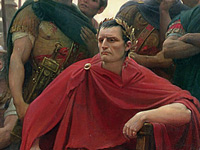
RESOURCES
This article uses material from the Wikipedia article "Julius Caesar", which is released under the Creative Commons Attribution-Share-Alike License 3.0.
© Stories Preschool. All Rights Reserved.
